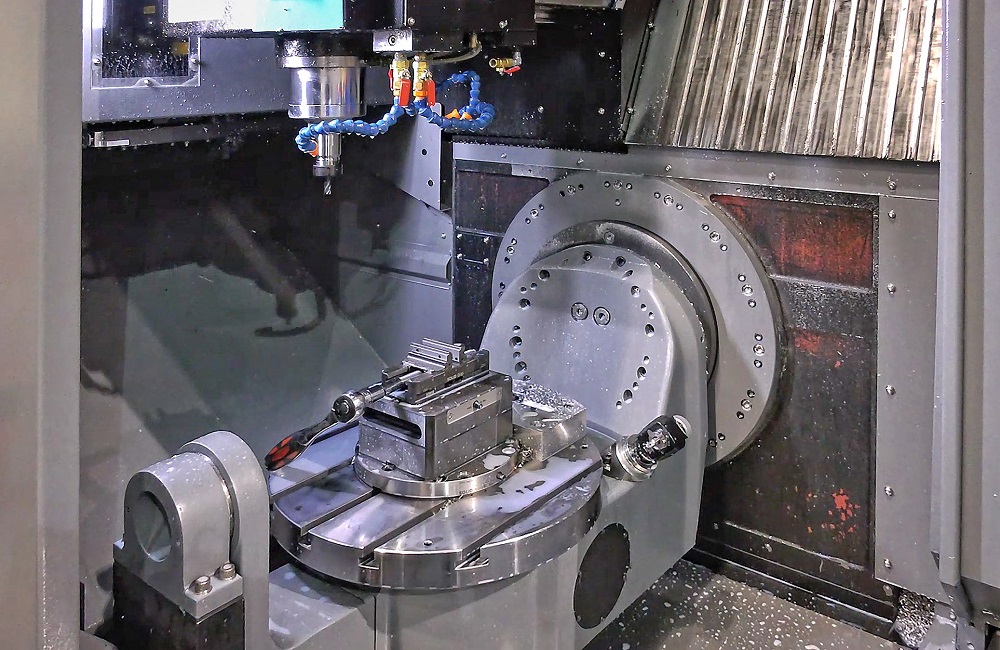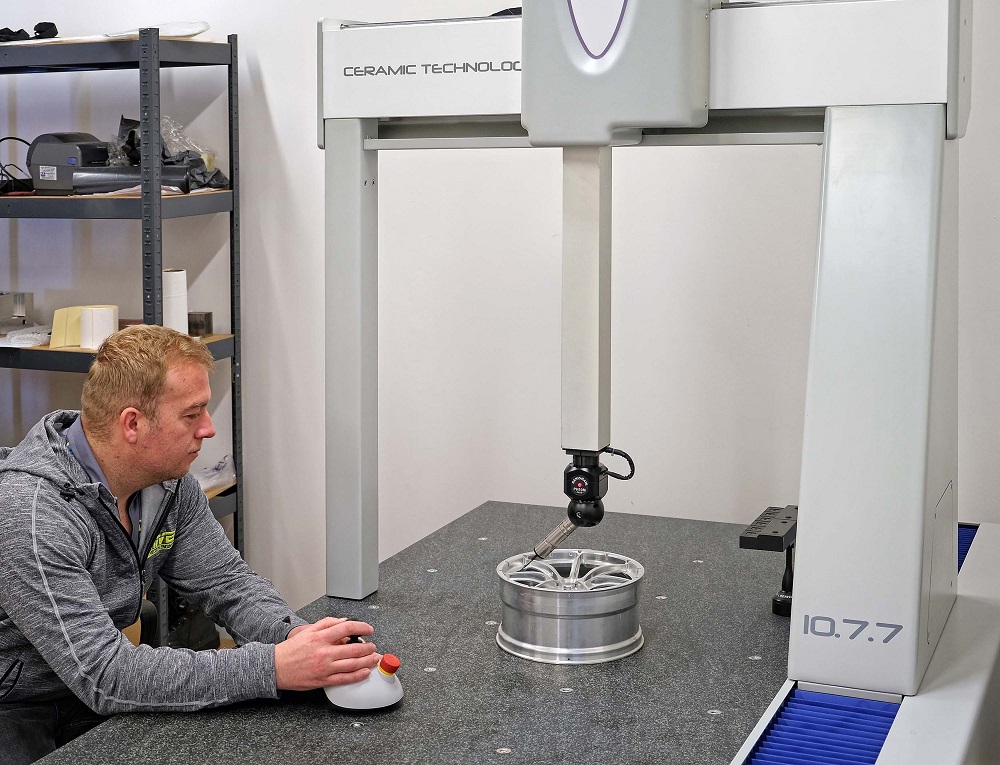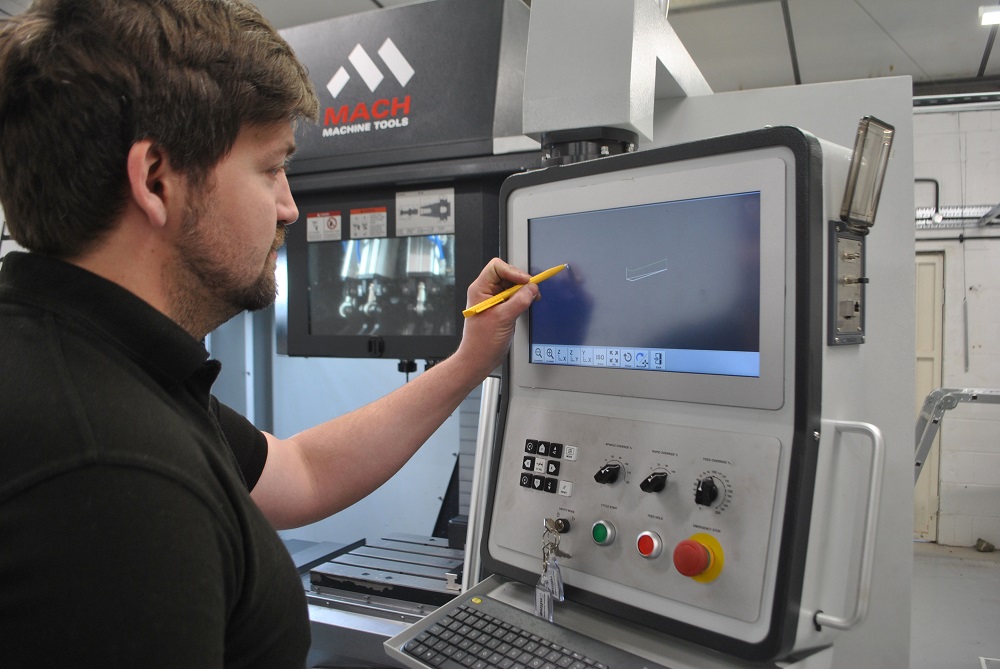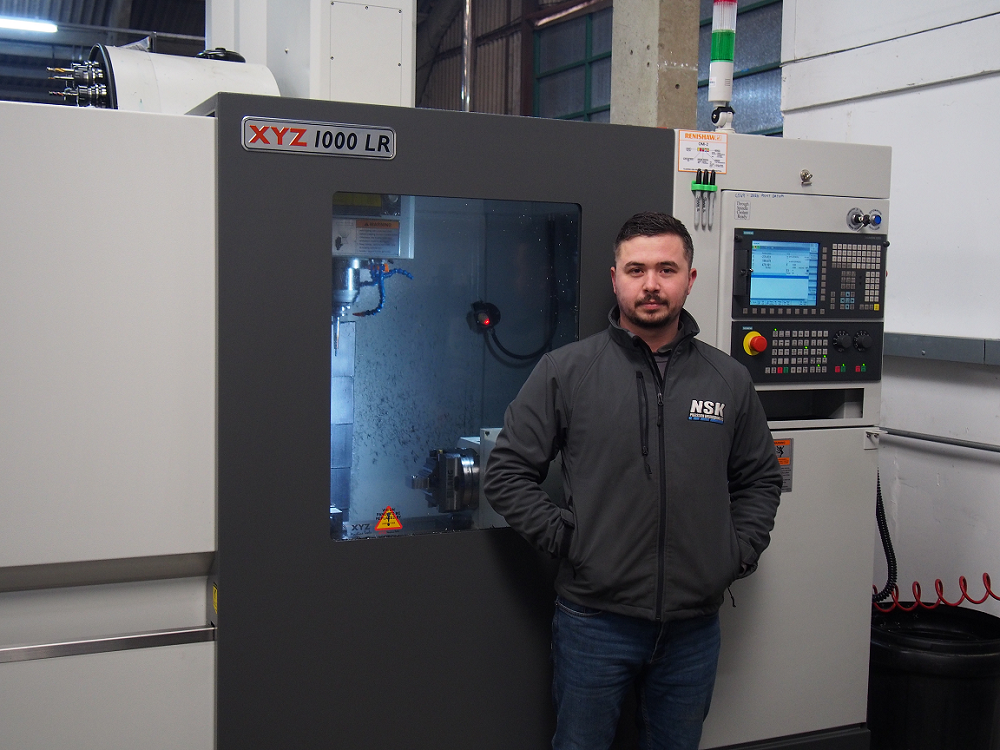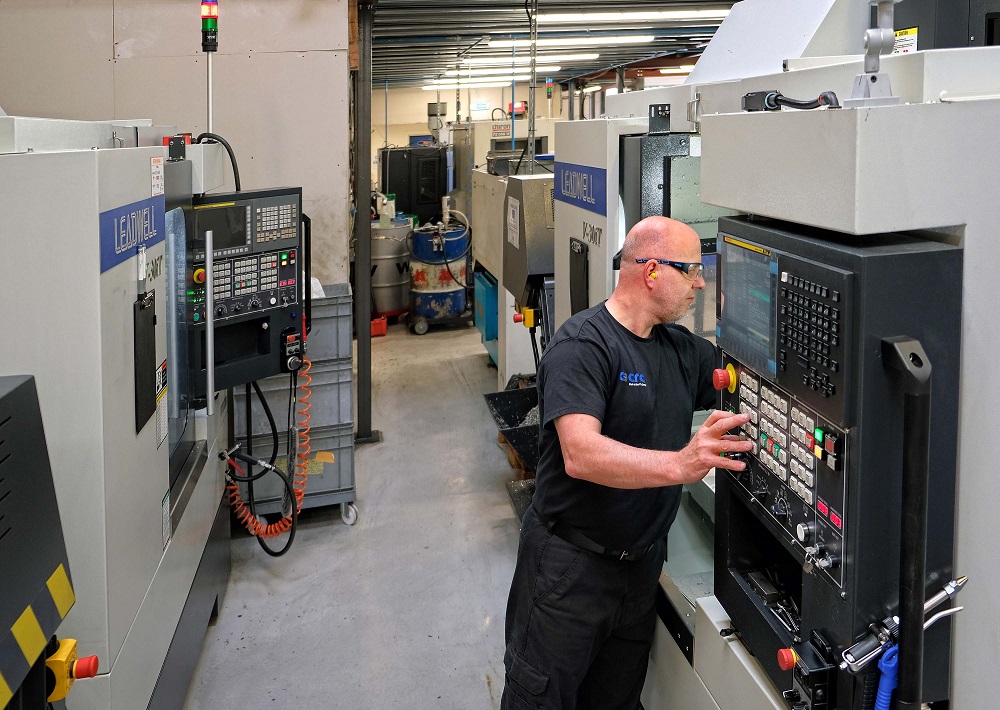Much of subcontractor Driven Engineering’s turnover comes from Formula One, although the cost cap imposed on teams over the past couple of years has reduced it somewhat, leading to a greater focus on aerospace, automotive and general engineering work. Owner Ray Harris has historically machined mainly jigs, fixtures and moulds for Formula One teams, which were telling him that to break into the supply of parts for race cars, he would have to improve his component inspection procedures and quality reports.
British CMM manufacturer LK Metrology was a beneficiary of those conversations, as Harris placed an order for one of the company’s AlteraC 10.7.7 CMMs. During its build at the Castle Donington factory, the machine was reduced in height by about 100 mm so that it would fit through the entrance to Driven Engineering’s latest factory unit in Havant and sit comfortably within a new quality room. As part of the deal, LK Metrology supplied a single licence of PolyWorks Inspector software, which is swappable between the CMM and an articulated arm bought in 2020 when Harris worked at a previous location in Portsmouth.
He says: “LK seems to be one of the metrology industry’s best-kept secrets. I had not come across them before, but our local calibration company and inspection equipment supplier, Mech Metrology & Power Tools, introduced me. Although LK is a sizeable operation that is celebrating its 60th anniversary this year, with a factory in Derbyshire and a worldwide customer base, it has a small-company feel. I got the impression that I’d receive good support and back-up, which so far has been the case. In addition, the CMM is well-built and the software provided is easy to use, including on the portable arm.”
The step up to CMM metrology immediately brought in extra Formula One work, mainly prismatic machining on three Hermle five-axis, high-speed machining centres, two of which are fitted with automatic pallet storage and retrieval systems for automated, 24/7 operation. Parts produced are typically for hydraulic manifolds as well as the race car front and rear wings and floor. The company processes a lot of titanium, plus stainless steel, aluminium and some engineering plastics. Unlike jigs and fixtures, which have fairly open tolerances, the latest parts have drawing tolerances down to 25 µm true position, which is impossible to check using the portable arm. The CMM, on the other hand, is able to measure features an order of magnitude smaller, so is easily capable of completing the inspection tasks.
During programming in PolyWorks, Harris simply picks the features and profiles he wants to inspect. The software then automatically sequences the points for the most efficient inspection routine, including all axis movements, head rotations and collision avoidance strategies. He says the software is particularly easy to use and ideal for someone new to CNC CMM operation. The system captures data both by touch-probing discrete points and tactile scanning using a Renishaw SP25M probe. Vastly more data is generated in a shorter time compared with touch-trigger probing only, enabling faster inspection and hence improved quality control. It also allows the population of more comprehensive reports with richer information on the accuracy of freeform areas on components, as well as dimensions. The PolyWorks software is able to present this data flexibly in a form that the customer prefers and is able to understand easily.
The pre-existing arm was supplied with a touch probe and a laser scanner, but now is used exclusively with the latter sensor for speed of operation when inspecting, for example, one in five of a batch of 920 aluminium mould tool halves having a complex profile, machined for the aerospace industry. On the other hand, LK Metrology supplied the CMM with tactile probing capability only, although it was prepared for laser scanning with a view to adding that capability in the future.
Before he invested in the machine, LK Metrology invited Harris to visit its Castle Donington factory to see a demonstration of an Altera 10.7.7 inspecting one of his components. It was fortuitous, as he was due to race at the Donington Park motorsport circuit nearby, having recently re-entered the sport by driving a GT car in the British Endurance Championship in early 2022. Unfortunately the Donington fixture was cancelled, so to save him the 350 mile round trip, he sent a water system for a Formula One car together with the CAD model to the factory by courier and opted to view the demonstration online. LK showed two ways of inspecting the component, first by touch-probing to orientate it on the granite and then laser scanning, and secondly using an SP25M to probe and touch-scan the part.
Suitably impressed with the latter metrology process, he decided to make the investment in the CMM and PolyWorks, whose ease-of-use is greatly helping his inspection productivity. Programming, due to the level of automation provided by the software, can take as little as 10 minutes, depending on component complexity and, unlike when using an arm, can be done in advance from the CAD model.
Installation of the CMM has opened up a number of different avenues, as availability of advanced metrology makes new business is easier to win, especially tight-tolerance work. Additionally, Harris has now bought a Ginetta GT race car to hire out for events and intends to start manufacturing a proprietary range of parts for it, such as uprights, bearing supports, axle extensions and drive shafts. The ability to control quality on the LK CMM to a higher level than previously possible will also enhance this new enterprise.
For further information www.lkmetrology.com






